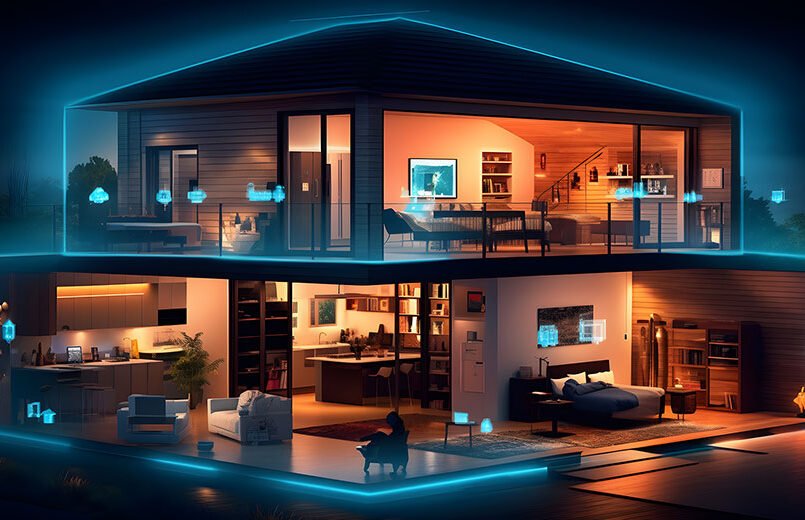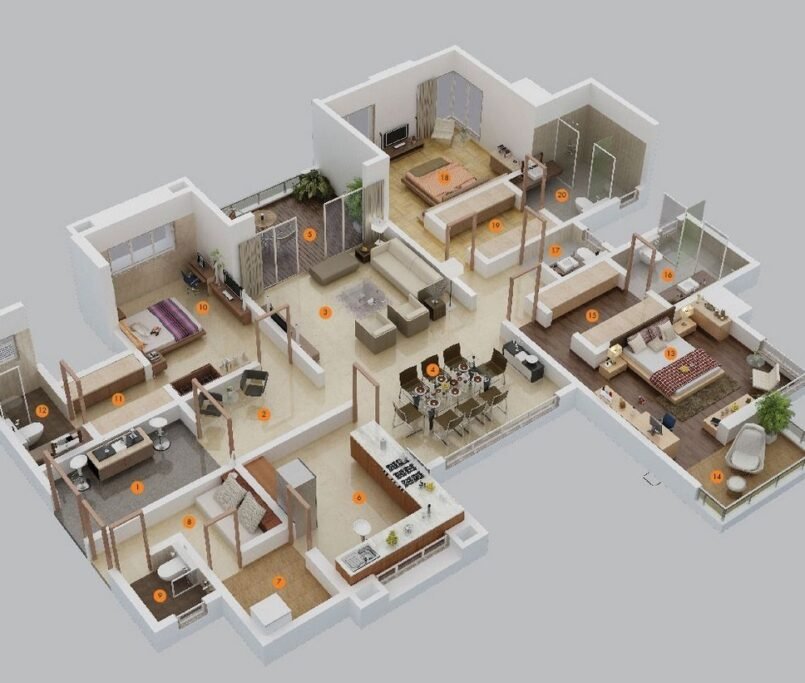Transforming Homes in Africa: The Rise of Smart Homes and Home Automation
Introduction
In recent years, the African continent has been witnessing a technological revolution, and one of the most exciting developments is the emergence of smart homes and home automation systems. As Africa embraces digital transformation, its residents are increasingly turning to technology to improve their quality of life, enhance security, and conserve energy. In this blog, we’ll explore the burgeoning trend of smart homes and home automation in Africa, highlighting the unique challenges and opportunities the continent faces in adopting this technology.
Smart Homes: What Are They?
A smart home is a residence equipped with various devices and systems that can be controlled remotely through a smartphone, tablet, or computer. These devices are interconnected and communicate with each other to create a more convenient, efficient, and secure living environment. In African countries, smart homes can provide numerous benefits, particularly in urban areas where rapid population growth and housing demands are prevalent.
The Benefits of Smart Homes in Africa
- Improved Security: Security is a top priority for homeowners worldwide, and Africa is no exception. Smart home security systems offer features like surveillance cameras, doorbell cameras, and motion sensors that allow homeowners to monitor their property remotely. In regions with high crime rates, these systems provide an extra layer of protection and peace of mind.
- Energy Efficiency: Many African countries face challenges related to energy conservation and access to reliable electricity. Smart home technology can help address these issues by allowing homeowners to manage their energy consumption more effectively. This includes controlling lighting, heating, and cooling systems remotely to reduce energy waste.
- Convenience and Comfort: Automation and remote control of home devices make daily tasks more convenient. African homeowners can easily control lighting, thermostats, and entertainment systems, enhancing their overall quality of life. For example, during a hot day, residents can remotely activate the air conditioning system before arriving home.
- Water Management: Access to clean water is a critical issue in many African countries. Smart homes can help address this concern by implementing water management systems that monitor usage, detect leaks, and optimize water resources.
Challenges and Considerations
While the potential benefits of smart homes in Africa are clear, there are several challenges to overcome:
- Infrastructure: Reliable internet connectivity and a robust power supply are essential for smart home technology to function effectively. Many African regions still face issues with connectivity and electricity access, which can hinder the adoption of these systems.
- Affordability: The initial cost of setting up a smart home can be high, which may make this technology inaccessible to many people. Governments and private sector entities need to work on making these systems more affordable and accessible to a broader population.
- Security and Privacy: With the growing connectivity of smart homes, the risk of hacking and data breaches increases. Ensuring the security and privacy of smart home systems should be a top priority, and users need to be educated on best practices.
- Local Adaptation: African countries have diverse climates and living conditions. Smart home systems need to be adapted to suit the specific needs and environments of different regions.
The Future of Smart Homes in Africa
The adoption of smart home technology in Africa is on the rise, and it holds immense potential to improve the lives of millions. As governments, tech companies, and homeowners collaborate to address the challenges, we can expect to see more affordable, efficient, and secure smart home solutions tailored to the African context.
African entrepreneurs like Clana Integrated Systems in Uganda are also beginning to develop home automation solutions that cater to the unique needs of their communities, fostering economic growth and innovation within the continent. This shift towards smart homes not only enhances daily living but also contributes to the development of a more connected, technologically advanced Africa.
Conclusion
Smart homes and home automation are slowly but surely making their way into African households, offering a promising future of convenience, security, and energy efficiency. With the right investments, infrastructure development, and local adaptations, smart homes have the potential to transform the way Africans live and ultimately improve the overall quality of life across the continent. As Africa continues its technological journey, the smart home revolution will play an integral role in shaping the homes of the future.






Priscillat
June 23, 2024Great article! I appreciate the clear and insightful perspective you’ve shared. It’s fascinating to see how this topic is developing. For those interested in diving deeper, I found an excellent resource that expands on these ideas: check it out here. Looking forward to hearing others’ thoughts and continuing the discussion!
clanaintegratedsystems
July 4, 2024Thankyou
You can reach us on our email for more discussions